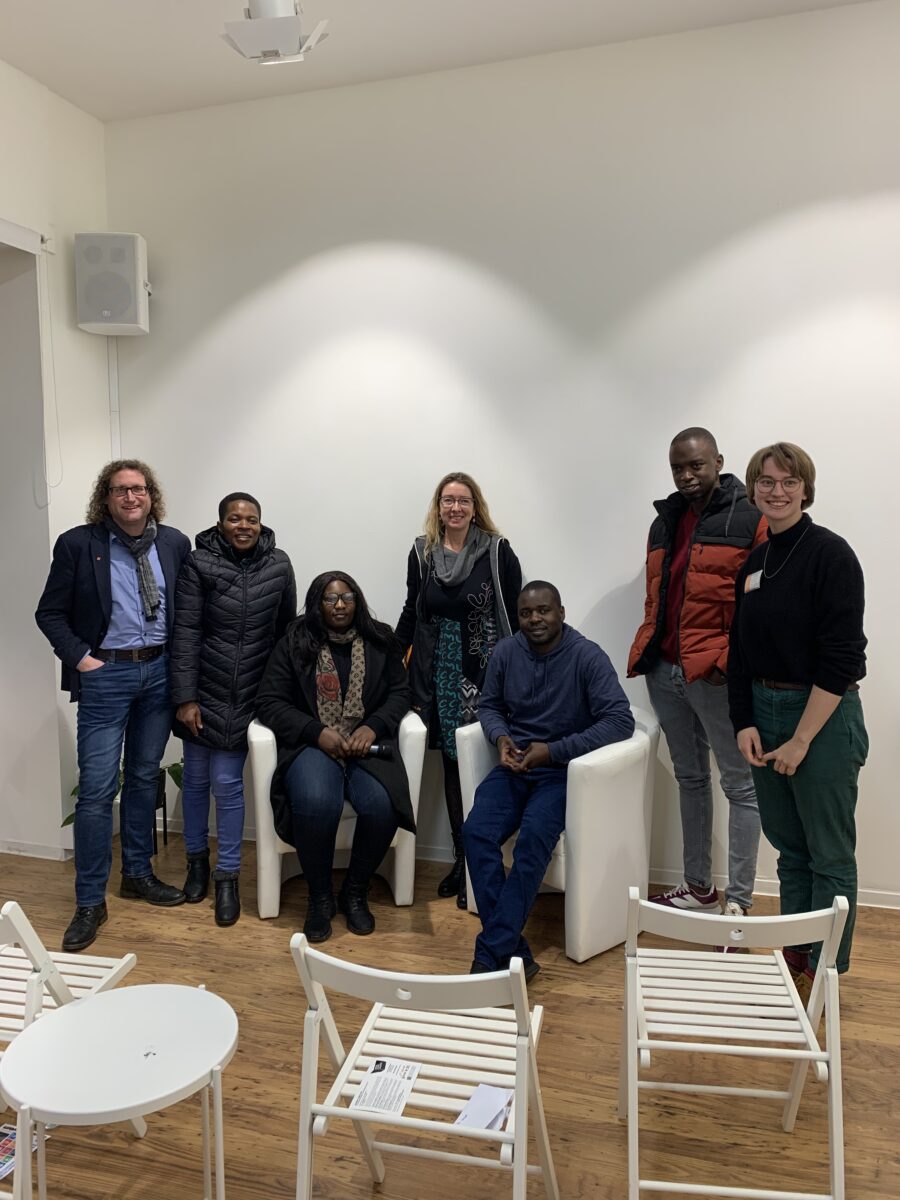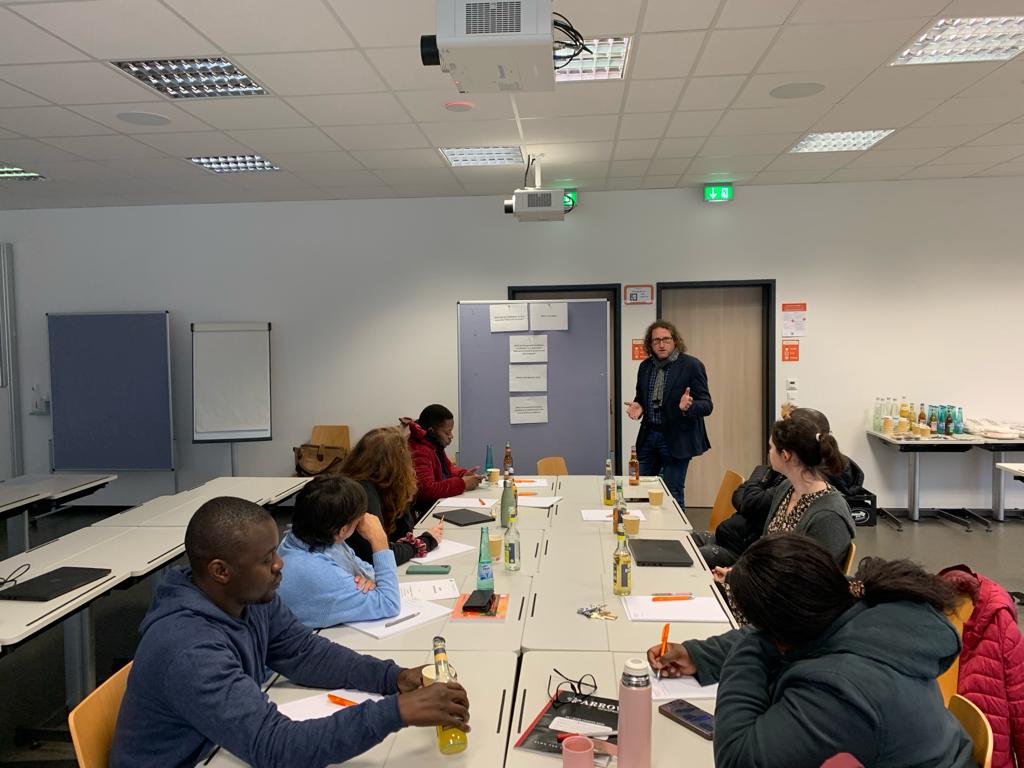How does the global transformation affect social work and how should those involved in the profession deal with it? To answer these questions, the program has set itself the goal of forming “SDG partnerships”: These are collaborations between universities in the Global North and the Global South based on the “17 Sustainable Development Goals” (SDGs) proclaimed by the UN.
Prof. Dr. Michael Boecker is leading the cooperation with three other universities on behalf of Dortmund University of Applied Sciences and Arts: the University of KwaZulu-Natal (UKZN), the University of Johannesburg (UJ), also in South Africa, and Midland State University (MSU) in Harare, Zimbabwe. The project is coordinated by social worker Dorothée Boecker.
In addition to the annual congress, the universities organize digital workshops and a regular exchange of doctoral students, which the universities take turns hosting.
Four doctoral students from South Africa and Zimbabwe visited Dortmund UAS at the end of 2023. During a stay of several weeks, they took part in numerous workshops, symposia and other events, visited exhibitions and some neighboring cities such as Cologne and Bonn.
In the Nordstadtgalerie Dortmund, the researchers presented their doctoral thesis topics, covering a diverse range of scientific issues.
- Sunungurayi Charamba from Midlands State University in Zimbabwe investigated the effects of climate change on rural women in the Chivi District in the Masvingo Province in Zimbabwe. In her work, she highlights the challenges and proposes adaptation strategies.
- In addition, Tapiwanashe Gladys Simango from the same university analyzed the cultural perspectives of grief and loss among the Ndau and Ndebele ethnic groups in Zimbabwe.
- Nomusa Munoangira from the University of Johannesburg looked at the role of social protection programs in promoting social development during the Covid-19 pandemic, focusing on the Buhera District in Zimbabwe.
- Bongane Morris Mzinyane from the University of KwaZulu-Natal in Durban provided insights into the practice of adult diversion by probation officers and prosecutors in a rural district of KwaZulu-Natal, contributing to a better understanding of the dynamics of the justice system. Diversion is a legal alternative to the court process, the conviction of which has less of a negative impact on the future lives of offenders than a prison sentence.
The event at the Nordstadtgalerie Dortmund provided a platform for intellectual exchange and underlined the importance of these doctoral projects in shaping the future discourse and academic landscape.
“These studies promise to contribute valuable insights to their respective fields and promote collaboration and the advancement of knowledge,” acknowledged Michael Boecker. The exchange “once again sharpened the focus on global issues and challenges as well as the opportunities and risks of development cooperation as a possible reproduction of postcolonial inequalities,” emphasizes Dorothée Boecker. Global challenges require global, joint efforts. All social actors – business, science, organized civil society, municipalities – should make a contribution to achieving the Sustainable Development Goals.
Development partnerships with private companies should be encouraged and promoted. All cooperation partners should be empowered to achieve their development goals with their own financial resources and be able to track progress independently. Public spending in the countries should be geared towards sustainability. The structure of the international system (financial system, world market, knowledge and technology) must be geared towards ensuring that all people in all countries benefit from it and have equal access to it. Everyone should make a contribution to achieving the SDGs and fulfill their international responsibility through professional exchange, partnership work and public relations.

